

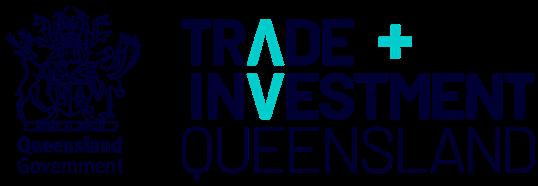
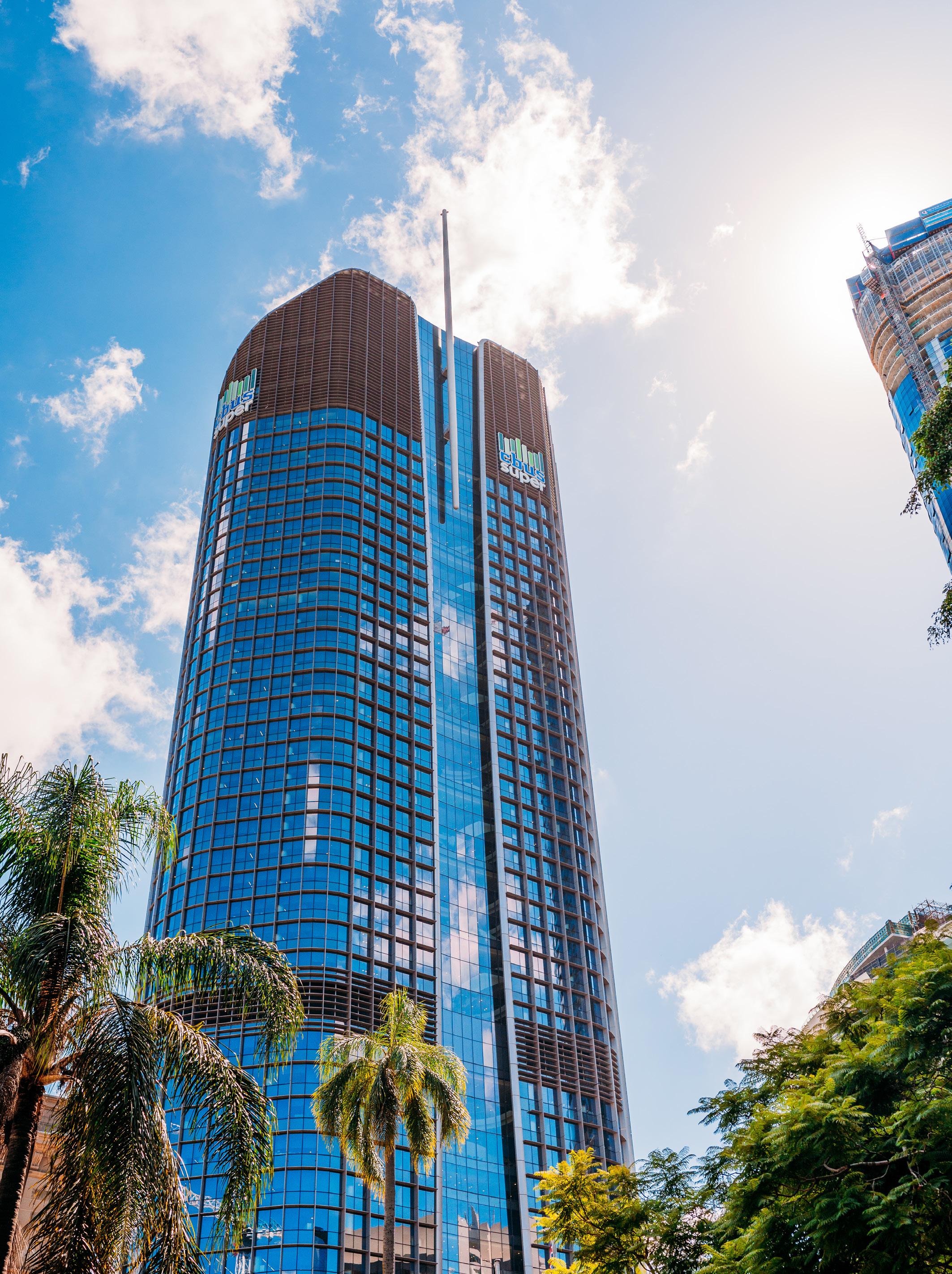


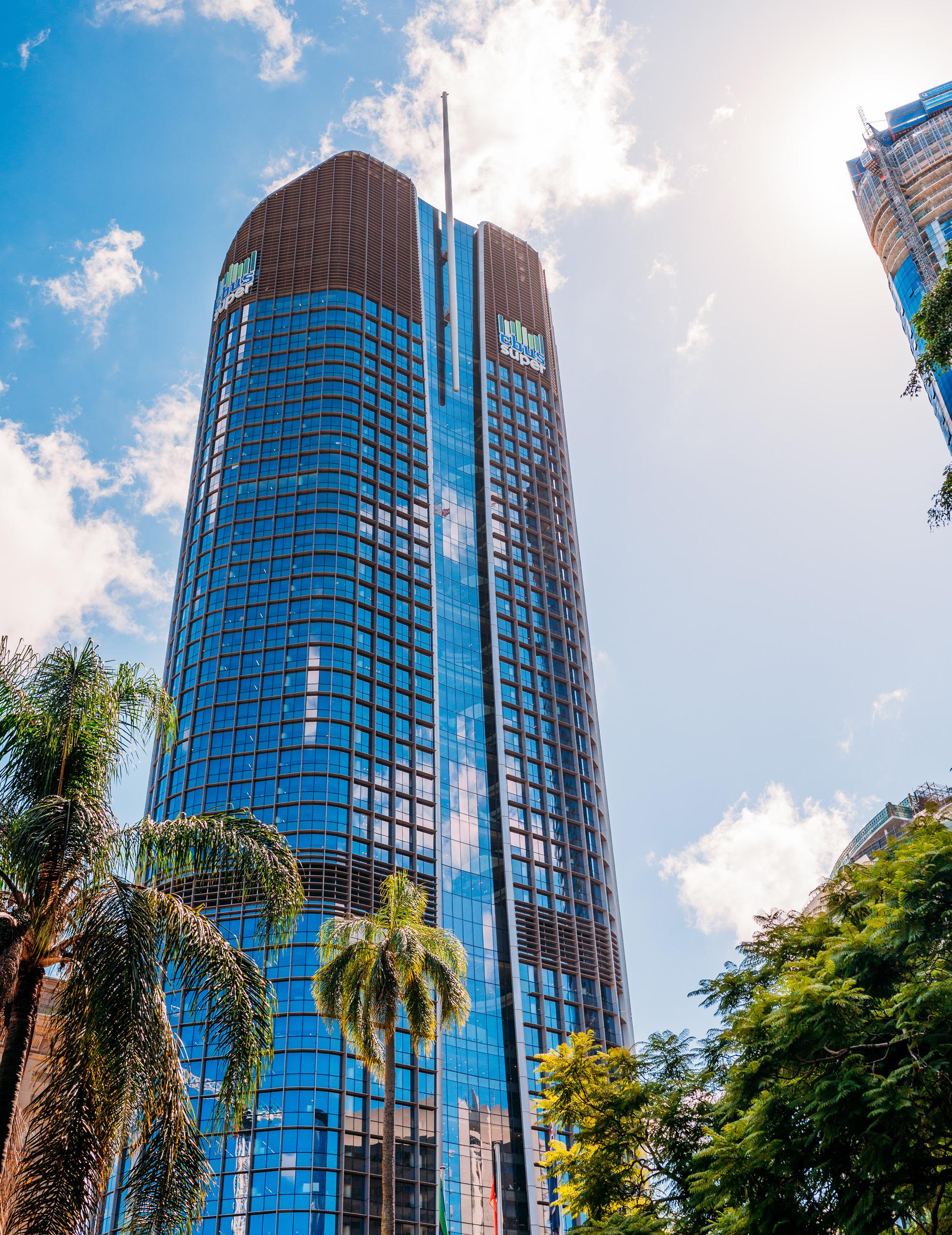








As it seeks to sustain an already prosperous economy, Queensland’s trade and investment sector is unlocking fresh export potential, strengthening international partnerships, and positioning itself as a prime destination for investors and innovators
Writer: Lily Sawyer | Project Manager: Deane Anderton
Australia’s economic prosperity has historically relied on its overseas exports as an island nation, having also leveraged foreign direct investment (FDI) to bring in skills and capital.
Despite experiencing a significant pace of change in recent years, particularly in the wake of the COVID-19 pandemic, Australia’s trade and investment landscape remains robust and has cultivated a reputation as a stable and trusted partner.
The state of Queensland in particular remains a stand-out contributor to the nation’s economy due to its fast-growing population, abundant mineral reserves, and sophisticated infrastructure, which combine to present an attractive business environment.
In addition, strategically located at the crossroads of the Asia Pacific region, Queensland has established enviable trade partnerships with many of Southeast Asia’s fastest-growing economies.
Meanwhile, a flourishing academic landscape, renowned for its innovation and ground-breaking R&D,
is a key differentiator fuelled by world-class universities, four of which are listed amongst the QS Top 50 Under 50, which ranks the top universities under 50 years old.
Ahead of the 2032 Olympic and Paralympic Games, which will take place in and around Queensland’s capital city, Brisbane, development of infrastructure and facilities is currently underway, anticipated to have a significant statewide impact on trade and investment to the tune of AUD$8.1 billion in economic and social benefits.
As such, the Queensland Government’s global trade and investment agency, Trade and Investment Queensland, is delivering the 2032 Trade and Investment Strategy, which aims to boost prosperity by leveraging existing competitive advantages in an ever-evolving global economy whilst seeking additional trade and investment opportunities.
It also plans to raise Queensland’s profile as an attractive trade and investment partner by participating in major global events and continuing to attract international investment to grow the job market.

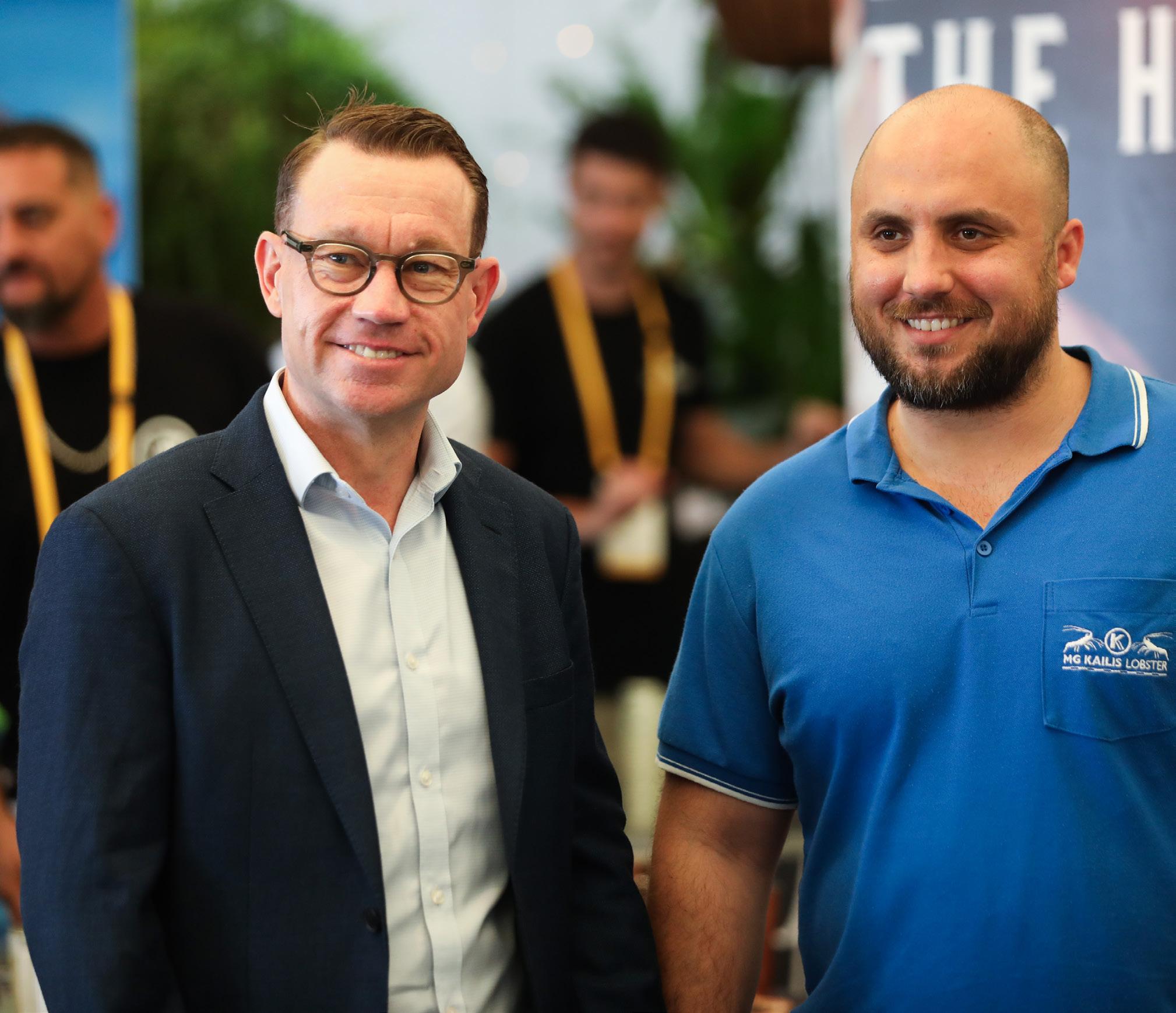

We sit down with Justin McGowan, CEO of Trade and Investment Queensland, who discusses the organisation’s role in advocating on behalf of Queensland and supporting the state’s export businesses which are integral to Australia’s national
APAC Outlook (AO): Firstly, could you talk us through the origins and primary goals of Trade and Investment Queensland?
Justin McGowan, CEO (JM): At Trade and Investment Queensland (TIQ), we’re not just connecting Queensland to the world, we’re reimagining how a state of five million people competes in a global economy of billions.
We’re all about representing the state, which today has a half-a-trillion-dollar economy, and its goods and services.
We have officers in 27 locations across 18 global markets, as well as eight offices across Queensland, and we help businesses of all sizes – from small family firms to very large organisations – to leverage global opportunities.
AO: What is your perspective on Australia’s trade and investment landscape, and how has it evolved over the course of your career?
JM: It’s a mix of both challenging and exciting; I think the entrepreneurial spirit that exists both in Queensland and the rest of Australia is positive.
Out of necessity, we’re required to make friends and partners and connect with the world. There are challenges – particularly in light of the headwinds caused by the COVID-19 pandemic.
However, we’ve got a compelling story to tell. We’re a big mining state; we’ve got lots of critical minerals and some of the best coal in the world, particularly coking coal that is essential for making steel.
On the agriculture front, we export 70 percent of what we produce. For example, we’ve got 13.5 million cattle in the state, and we love exporting our beef, whilst exporting fruits and vegetables is also a significant industry for us.
AO: How do you support the collective interests of your clients whilst assisting them in building export potential and facilitating FDI in the state?
JM: Queensland’s scale demands bold leadership. From remote avocado farms to urban artificial intelligence (AI) labs, we ensure no opportunity is too small to support, and no market is too large to reach.
We have offices in the communities we serve to support micro, small, and medium-sized enterprises. One of our smallest exporters started with a single tray of refrigerated mangoes. With our help, they’re now delivering weekly shipments to South Korea. It’s these examples that demonstrate our true value.
All our services are free, and we help businesses to understand where they’re at in terms of their maturity before identifying potential markets to help them get export-ready.
As such, we have a number of grant programmes where we financially support businesses in increasing their maturity. This includes identifying their barriers to entry by providing assistance with labelling standards, for example, or protecting their intellectual property in particular markets.
Then, we come up with a business plan and remain with them for the first 12 months until they secure an initial deal. We don’t let them go until they get a deal across the line.
As part of the Queensland Government’s Trade and Investment Strategy, TIQ has identified priority industries it believes would benefit most from trade and investment to shore up the state’s economic longevity far into the future. These include:
• Advanced manufacturing – Leveraging strengths in industrial, automotive, and marine manufacturing whilst developing R&D centres of excellence.
• Biomedical – Home to many BioTech and life sciences organisations, TIQ plans to continue supporting world-leading science, research, and innovation.
• Critical minerals – The state has rich deposits of many of the critical minerals the world needs to drive innovation in manufacturing, science, and technology.
• Defence – Continuing to fund and support heavy vehicle manufacturing, maritime maintenance, quantum technologies, and cybersecurity.
• Enabling and innovative technology –Capabilities in transport, FinTech, and robotics R&D set Queensland apart as a centre of innovation.
• Food and agribusiness – Supporting agricultural R&D, internationally recognised research, and safe, high-quality agricultural exports.
• International education and training –Maintaining a strong reputation for quality education.
• Mining and resources – As demand for coal and gas is expected to remain high and mining equipment, technology, and services (METS) capabilities thrive, this is a crucial industry.
• Professional services – Well placed for continued international success, Queensland’s most successful businesses comprise engineering, construction, and healthcare.
• Renewable energy – Queensland’s abundance of energy sources and proximity to major buyers sets it apart.
• Tourism - The state’s tourism infrastructure and experiences promote high-value projects that drive regional growth and showcase Queensland’s unique offering.
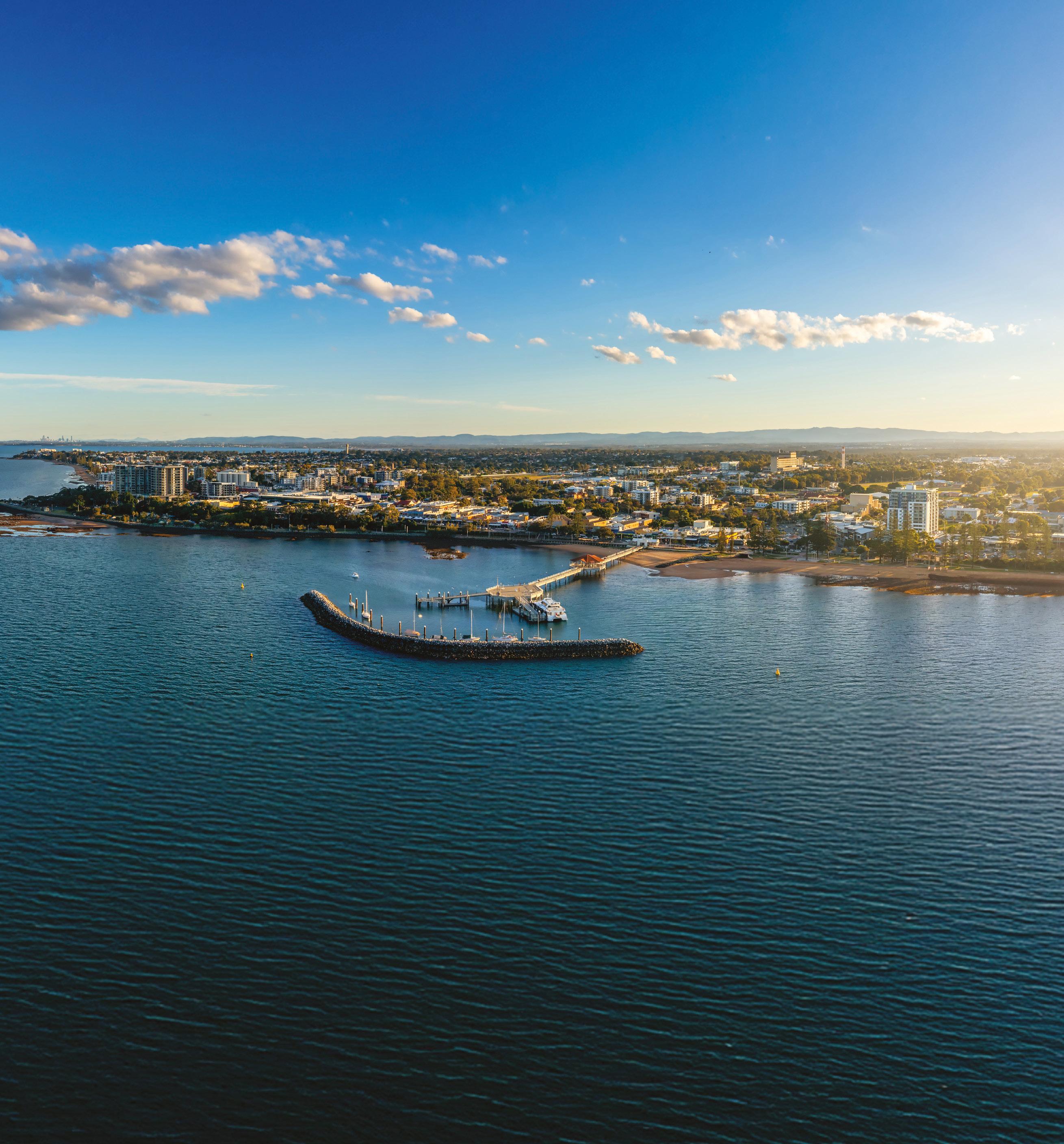
Rapidly growing in the heart of booming South East Queensland, is City of Moreton Bay. Australia’s third largest Local Government Area and fifth fastest growing area, offering space, skilled workforce and strategic infrastructure to help bold, innovative, industries grow and thrive. Situated just 30 minutes from Brisbane CBD, Moreton Bay offers businesses connectivity to Asia Pacific markets through the nearby Port of Brisbane and Brisbane International Airport.
It’s a city with a Bigger, Bolder, Brighter future - ready for investment.

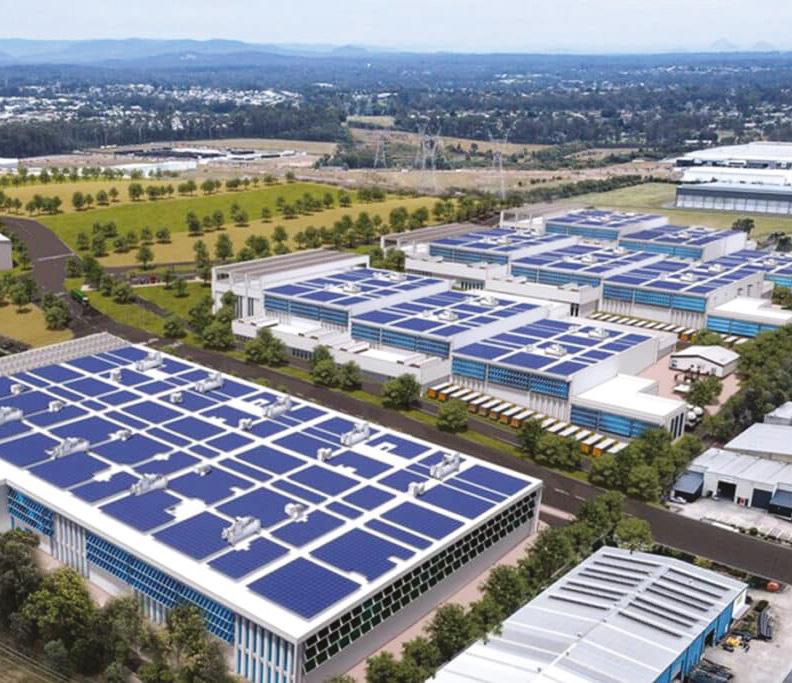
Quinbrook’s $2.5B Supernode is set to be Australia’s largest battery and green data infrastructure projectpossibly the biggest in the Southern Hemisphere. With 750 MW and 2,540 MWh capacity, it drives the shift to clean, resilient, digitally enabled energy. Backed by global capital, this landmark project positions City of Moreton Bay to deliver sustainable energy at scale and demonstrates that the City is investment ready.

Whether you’re an advanced manufacturer, clean energy leader, healthcare or technology innovator –City of Moreton Bay has the infrastructure, people, and partnerships to make your investment a success.
12 population growth fronts, two Priority Development Areas (PDA), and four major industrial precincts will attract and support 308,000 more residents, establish 125,000 new homes, and 85,000 new jobs by 2046. Through projects like UniSC’s future 25,000-student campus, and North Harbour’s $2.7B marina and business hub creating 7,000 jobs, City of Moreton Bay is unlocking investmentready destinations with scale, infrastructure, and vision. investmoretonbay.com.au

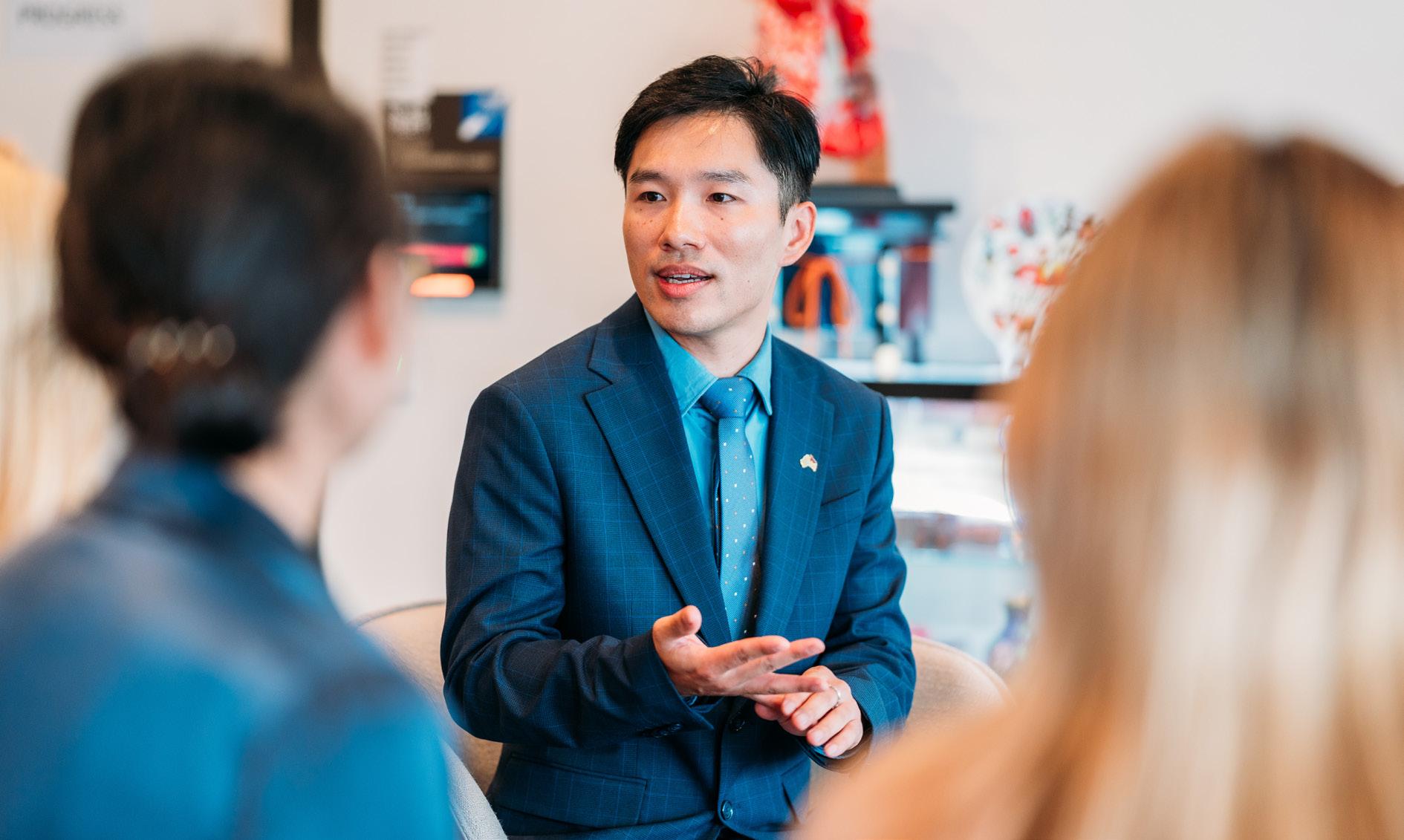
AO: How extensively is TIQ involved in contributing to policy and regulatory frameworks that may affect Queensland’s trade and investment landscape?
JM: As the Queensland Government’s dedicated global business agency, we are responsible for trade policy in the state and seek to influence policy where we’re not directly responsible. We may advocate to the Australian Government or other departments of the Queensland Government to make the state as competitive and productive as it can possibly be.
One in four jobs in Queensland are underpinned by trade, and one in eight are underpinned by FDI, which is incredibly important to our economy.
So, yes, we work hard to influence policy settings to ensure everyone in Queensland knows we are a trading state.
The importance of trade and investment is more acute in regional areas –in fact, 42 percent of Queensland exporters are located regionally.

When we’re looking at a small country town with 2,000 people, for example, TIQ can help by introducing a solar farm that creates another 20 jobs to support and maintain the local economy.
“IN AN UNPREDICTABLE WORLD, QUEENSLAND OFFERS INVESTORS SOMETHING RARE - CERTAINTY. HERE, RULES DON’T CHANGE WITH THE WIND”
–
JUSTIN MCGOWAN, CEO, TRADE AND INVESTMENT QUEENSLAND
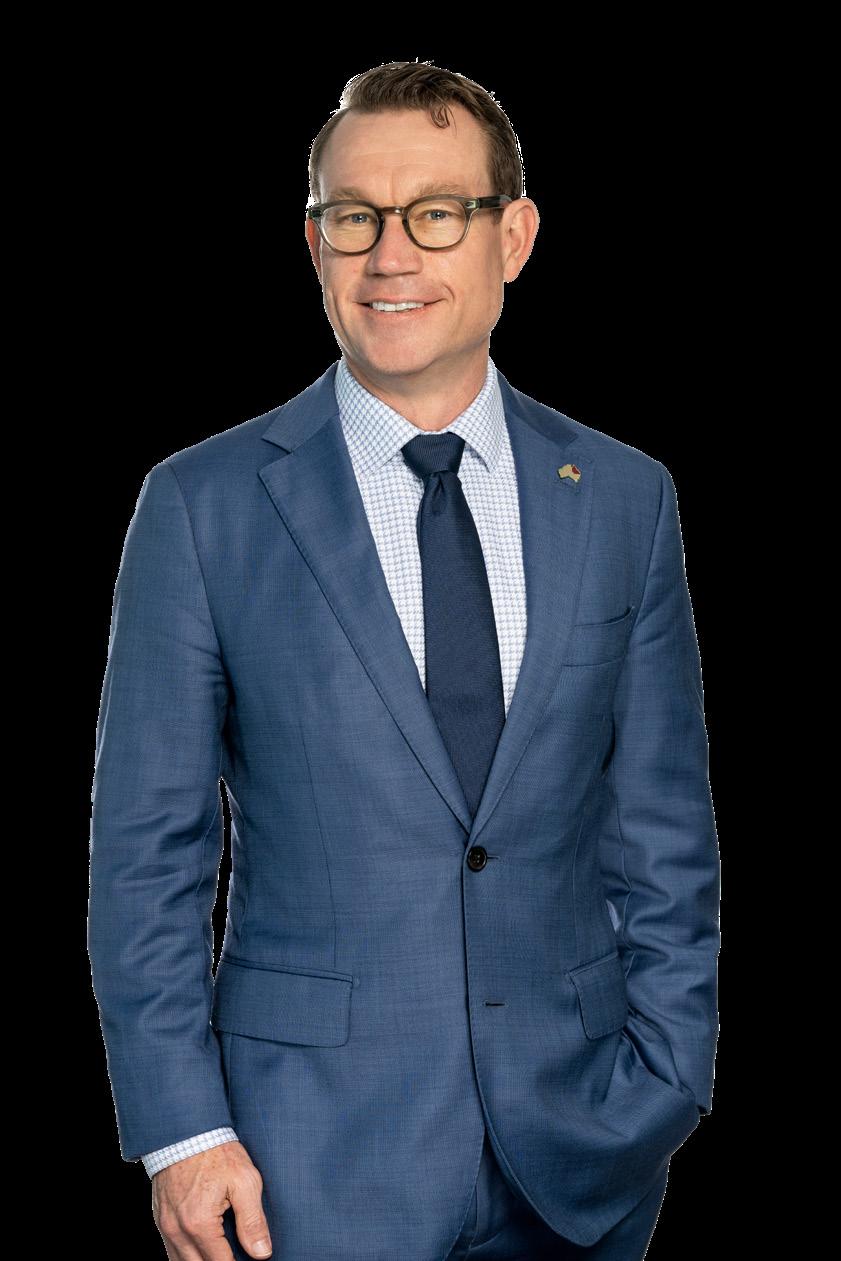



Since 1982, we have proudly and successfully managed our Asia Pacific (APAC) network of venues from our Brisbane based Regional Head Office, providing jobs, professional development opportunities and careers for our head office and venue based teams.
Our 40+ APAC managed venues span from Christchurch to Riyadh, across three continents, eight countries and a local potential audience of over 195 milllion people.
ASM Global already provides jobs to over 2,000 Queenslanders via the venues we manage in Queensland. Our commitment locally also includes our purposeful procurement strategy which emphasises delivering long-term value for our Venue Owners, over short term cost savings.

We are intimately involved at every stage of the of the local, national and global sports and entertainment markets with trusted and established links across all support networks. We cater to local preferences across sports, music, family, community and other live event experiences as we understand the unique programming mix that performs best in Queensland.
ASM Global APAC has been able to leverage our positive relationships across promoter networks to always try and ensure that Queensland does not miss out. Our centralised booking approach means we can help our partners plan well in advance to maximise their time in Australia and across our four venues being:
Brisbane Entertainment Centre
Brisbane Convention and Exhibition Centre
Suncorp Stadium and the Cairns Convention Centre
These venues drive phenomenal economic benefits for both the local and state economies and strong gross profit returns to the owners of the assets. This includes our local and indigenous procurement strategy as well as ASM Global’s Culinary
Philosophy of highlighting the local cuisine or our venues in food and beverage offers.
Instead of paying third-party workforce providers, hiring directly and locally for the majority of venue roles creates jobs, promotes workforce development, and helps retain skilled staff within the State. It is how we achieve our 99%+ local workforce benchmark for all of our Queensland venues.
We work closely with local registered vocational training organisations (RTOs) and tertiary education providers to develop and sustain a strong pipeline of skilled candidates for the ongoing development of the Events industry in Queensland.
Securing international artists to perform in South East Queensland boosts Brisbane and Queensland’s bottom line and adds to the experience economy, which is set to grow at 3% per year to 2031.
Just in February this year at the Brisbane Entertainment Centre we were pleased to host the following international artists:
· Billie Eilish for 4 nights
· Drake for 2 nights
· Kylie Minogue for 2 nights
· Chris Stapleton for 2 shows.
Across these four artists Brisbane Entertainment Centre hosted over 123,000 ticket holders with over 34% or over 41,000 visitors being from interstate, intrastate or overseas. This year will be a record year for the Brisbane Entertainment Centre. There is an under recognised impact that the event industry has on the economy for dedicated fans, seeing a big show is the often the highlight of their year.
ASM Global will continue to bring artists, events and experiences to Queensland audiences across our venues.
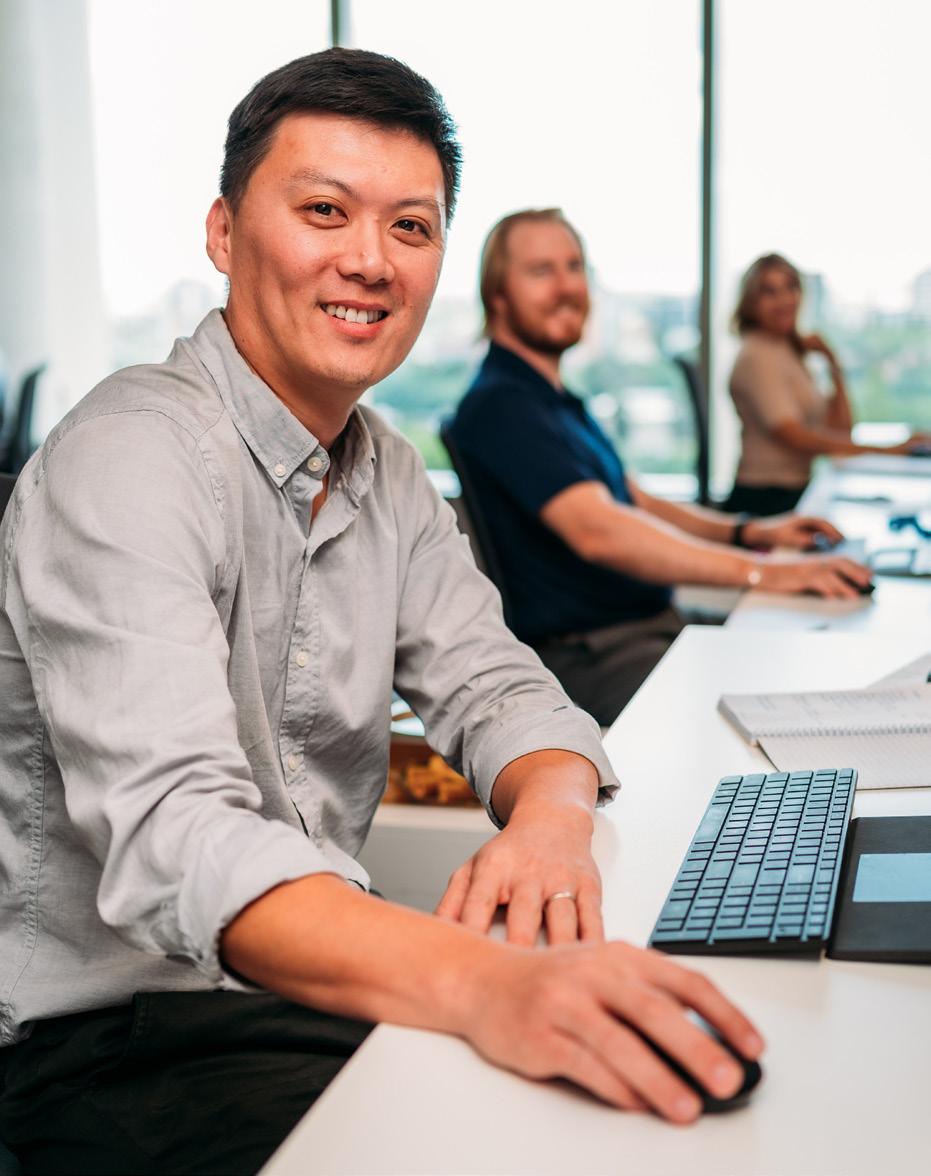
This kind of thing makes a huge difference to those small communities.
Therefore, a significant portion of our efforts support regional Queensland as much as the southeast corner, where Brisbane and the Gold Coast are located and a lot of economic activity typically occurs.
AO: How do you leverage the advantages of Queensland’s strategic geographic position at the crossroads of the Asia Pacific region, and how extensively does Queensland’s export market support the national economy?
JM: We’ve got about 20 percent of the country’s exporters, meaning about 8,000 are here in Queensland, and we have approximately half a million businesses.

Queensland and Western Australia do the majority of the heavy lifting in terms of supporting the Australian economy. We export more than Victoria and New South Wales combined, largely because of the commodities we export such as gas and agriculture.
Our proximity to Asia Pacific is a distinct advantage for Queensland, and we know that Southeast Asia is going to be the fourth-largest economy by 2040, so we are currently focusing our efforts on that.
We have offices in Ho Chi Minh City and Hanoi (Vietnam),
Australia’s first on-demand current good manufacturing practices (cGMP) manufacturing facility will significantly boost the biomanufacturing landscape when it opens in Brisbane in 2026.
Designed to accelerate BioTech, pharmaceutical, and MedTech innovations, the facility will provide infrastructure that enables companies to scale their production for clinical trials without the overhead of traditional manufacturing models.
Translational Research Institute (TRI) CEO, Professor Maher Gandhi, says the facility addresses a critical gap in Australia’s innovation pipeline, with the option of onshore manufacturing of advanced therapies such as RNA-based products, cell therapies, biologics, and drug-device combinations.
Under construction with AUD$100+ million in investment from TRI and the Queensland Government, the facility will offer companies flexibility whilst retaining control of their processes, intellectual property, and production timelines.
It will provide access to state-of-the-art cleanrooms and wet labs, offer tailored support through regulatory insight and process development expertise, and meet Australian and international cGMP practices and ISO standards.
Strategically located within the Boggo Road Innovation Precinct and adjacent to TRI and its clinical trials facility at the Princess Alexandra Hospital, the facility is positioned to foster collaboration within a dynamic life sciences ecosystem.
The facility will also train a skilled workforce in advanced manufacturing techniques, addressing Australia’s talent shortage in this sector.
Jakarta (Indonesia), and Singapore. We recently relocated our headquarters from Singapore to Vietnam to account for the growing economy there.
Vietnam is the fastest-growing economy in Southeast Asia. Soon, we’ll launch our Southeast Asia-Queensland strategy, reflecting our top priority markets for the state –India and Southeast Asia – accordingly.
We’re currently heavily exposed to China, Japan, South Korea, Taiwan, and India, so we are looking to diversify our economy as much as possible.
AO: Could you talk us through the role TIQ is set to play in the 2032 Olympic and Paralympic Games in Brisbane, the accompanying infrastructure development, and the anticipated trade increase?
JM: When you have the opportunity to host a major global event, you must leverage it.
Currently, when people think of Australia, they might think of Melbourne or Sydney – this is our opportunity to really put Brisbane on the global stage.
We’re looking at a range of activities in the lead up to 2032, and at the moment, Queensland has distinct exposure as a Gold Partner of the Australia Pavilion at Expo 2025 in Osaka, Japan, which is anticipated to welcome more than 28 million people.
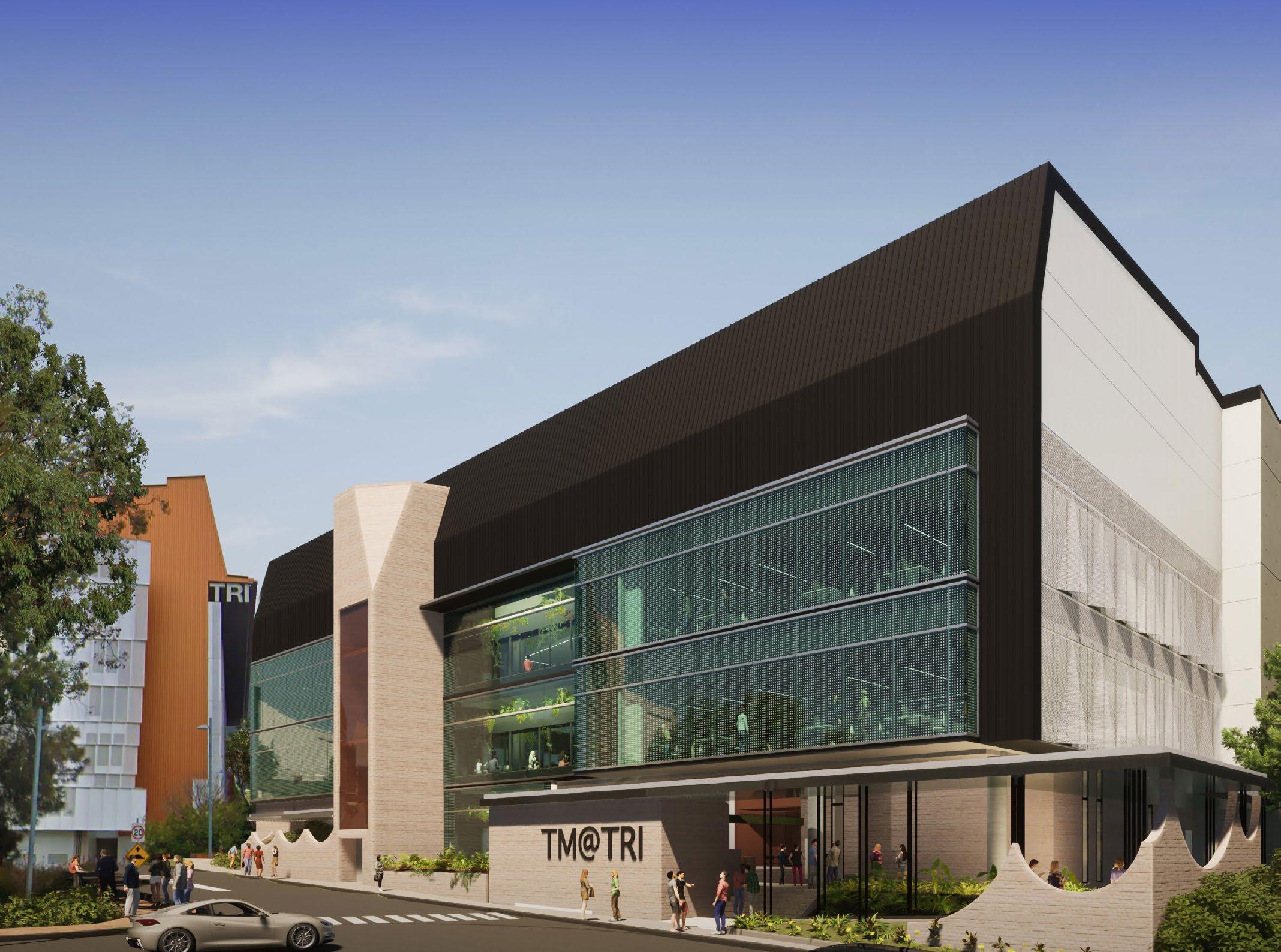
Proudly funded by the Queensland Government and TRI, the new Translational Manufacturing facility will provide open access GMP production facilities, extending TRI’s capability to support nationally and globally significant biomedical research.

“I’m looking forward to helping deliver what will be a state-of-the-art biomedical hub in Australia with global impact. The addition of TM@TRI will make TRI the largest end-to-end translational research facility of its kind in Australia.”
David Crowley General Manager, Translational Biomedical Manufacturing
Find out more and register your interest scan the code or visit: tri.edu.au/translational-manufacturing
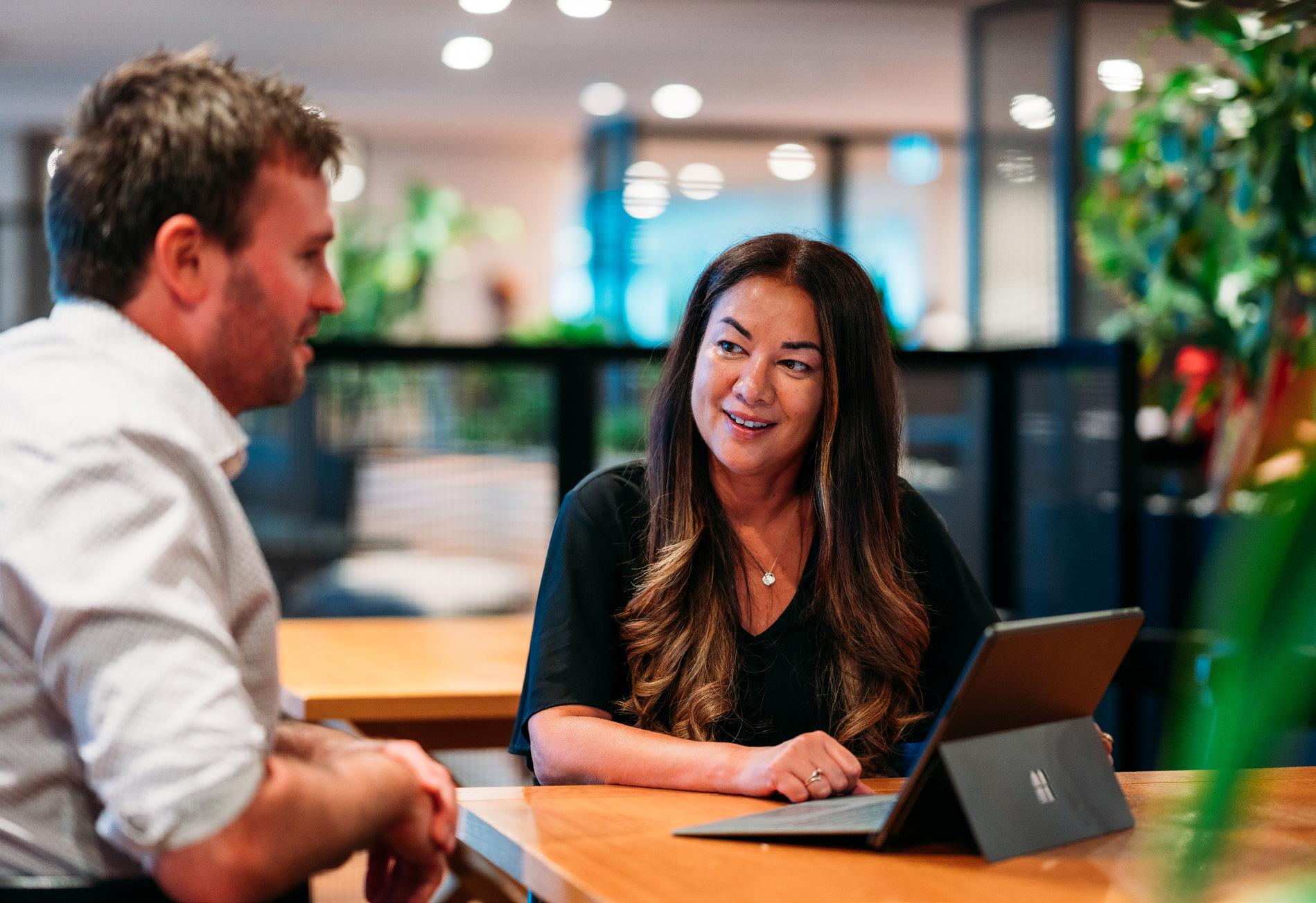
Expo 2025 and the 2032 Olympic and Paralympic Games are not just great events - they are global stages. Our job at TIQ is to turn that spotlight into investment pipelines, partnerships, and a lasting international business legacy for Queensland.
Currently, Queensland is known as a great holiday destination and mining state, but not necessarily as a great place to do business.
This year, we will be accentuating and highlighting the business environment and trade investment opportunities available in the state in a more prominent way.

We have universities here that rank amongst the top 50 in the world, great innovation, and we’re one of the fastestgrowing states in Australia from a domestic migration point of view – lots of people are moving here.
The next wave of trade isn’t about moving goods, it’s about moving ideas, innovation, and trust.
AO: Looking to the future, what are TIQ’s key priorities, and how do you see the investment landscape evolving?
JM: A key priority for us currently is preserving our existing market share against some significant global headwinds.
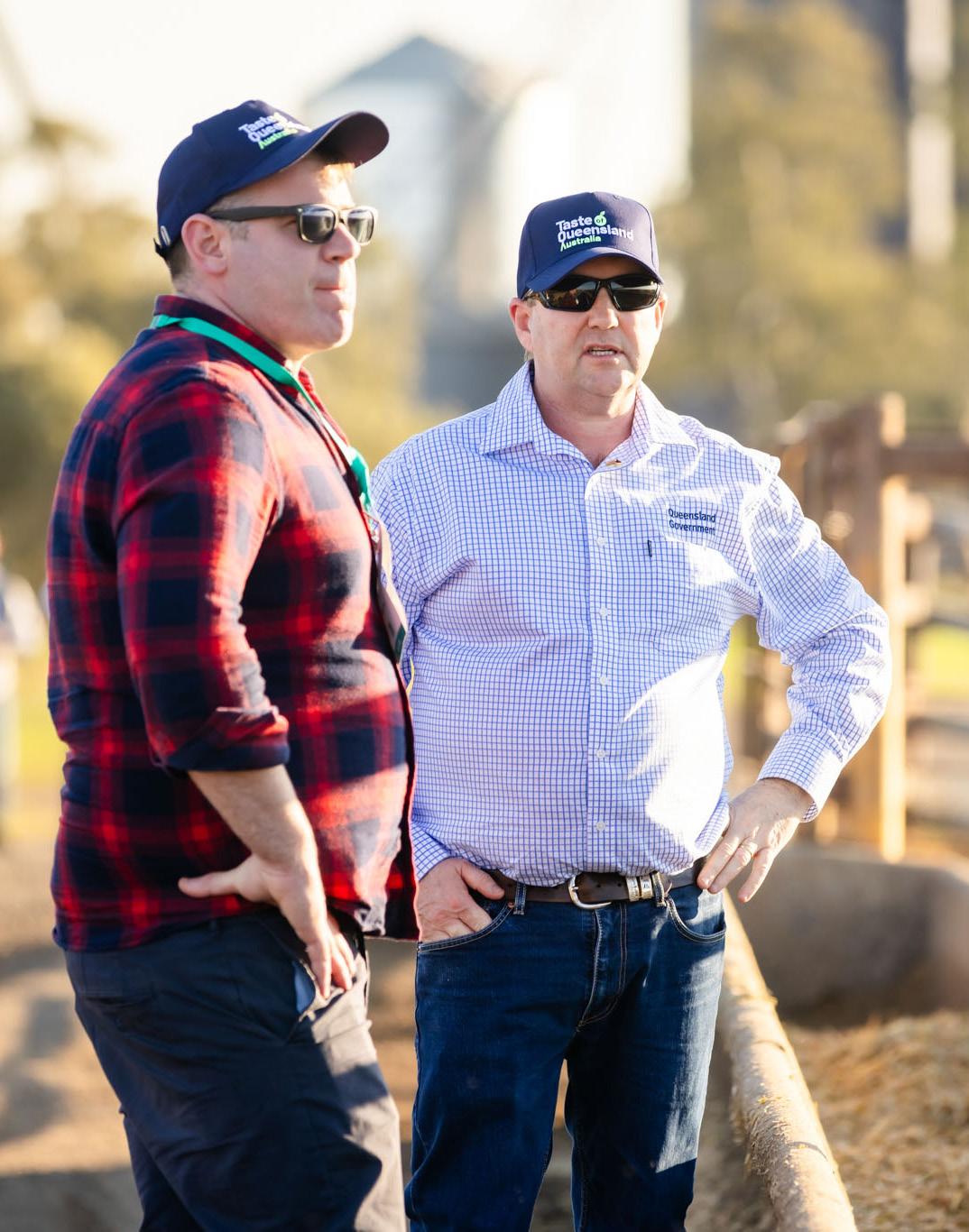

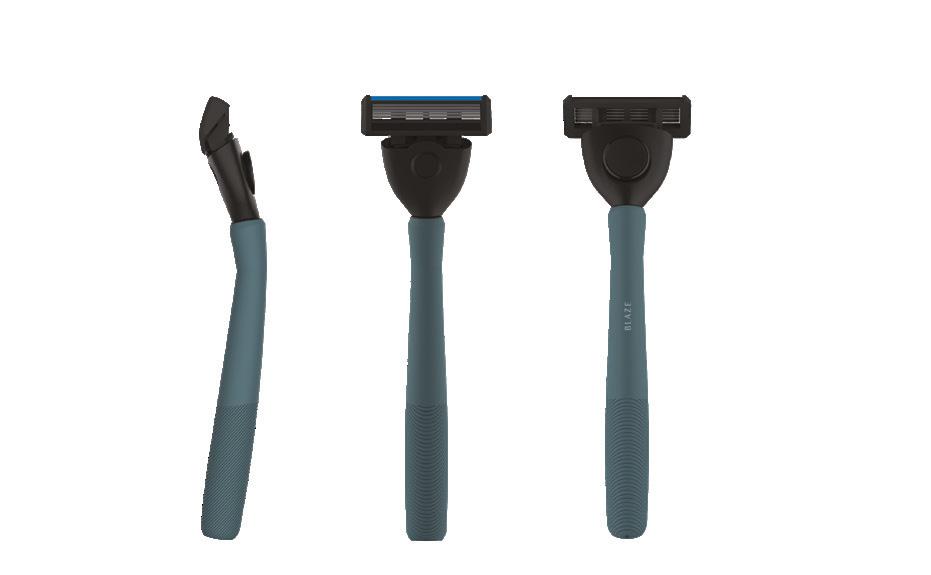
GSA is a full service design and manufacturing company who are world leaders in the personal care space. Specializing in razor handles, GSA have handled design, development, QA and mass production for most of the world’s biggest shaving brands. In 2025 and beyond, GSA is looking to Queensland for new trainees as well as opportunities in domestic manufacturing. HR Director Clare Daly will head up the search for new project management staff in the Sunshine Coast beginning June 21st as Chief Innovation Officer Will Phillips continues to dialogue with local manufacturers and innovative material suppliers.
CEO Nigel Phillips said Clare Daly has vast experience in the wet shave industry, her knowledge is crucial in identifying the correct candidates, both skilled and trainees, Clare will also be relocating skilled project managers from Hong Kong to assist in this exciting expansion.
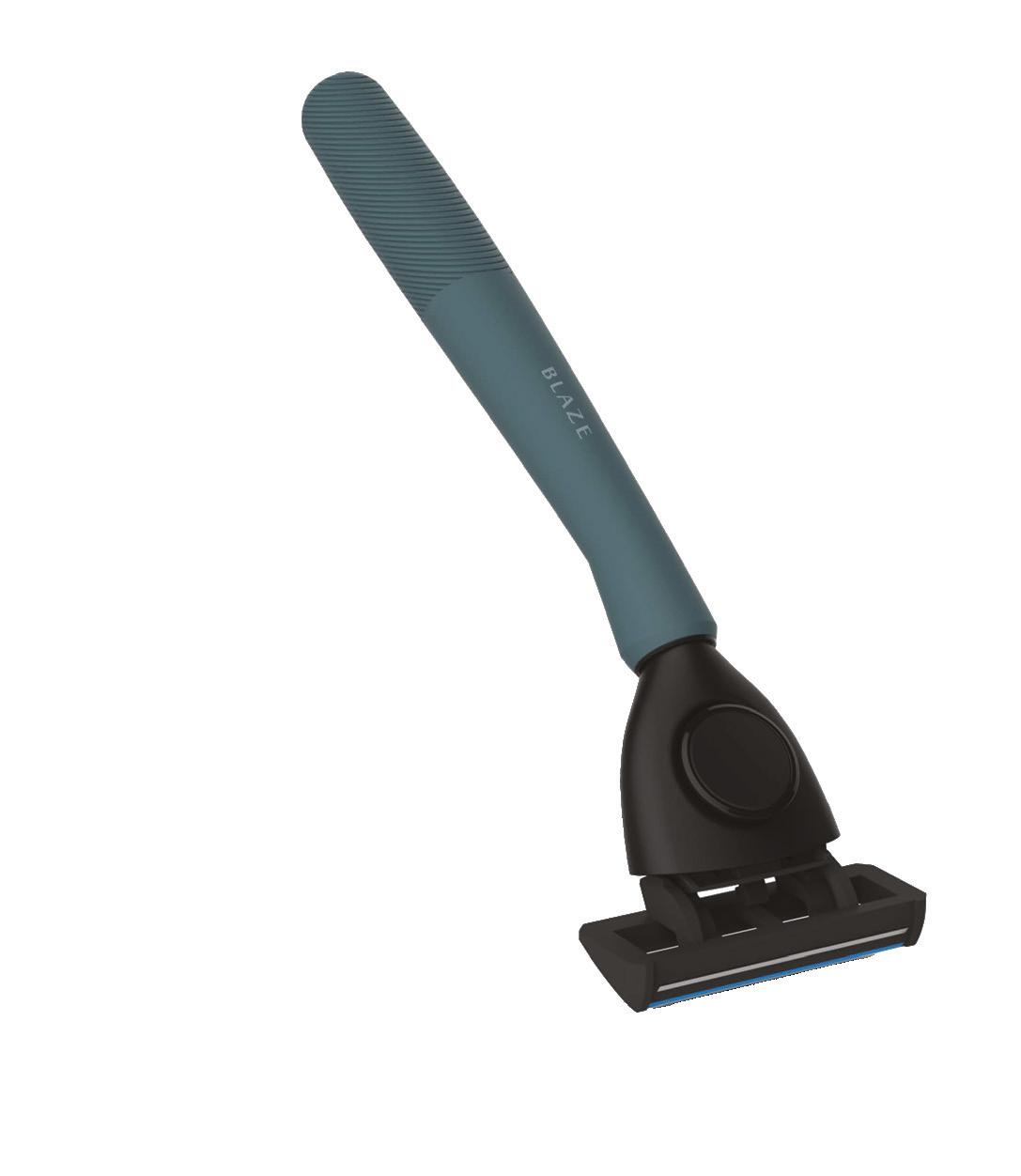

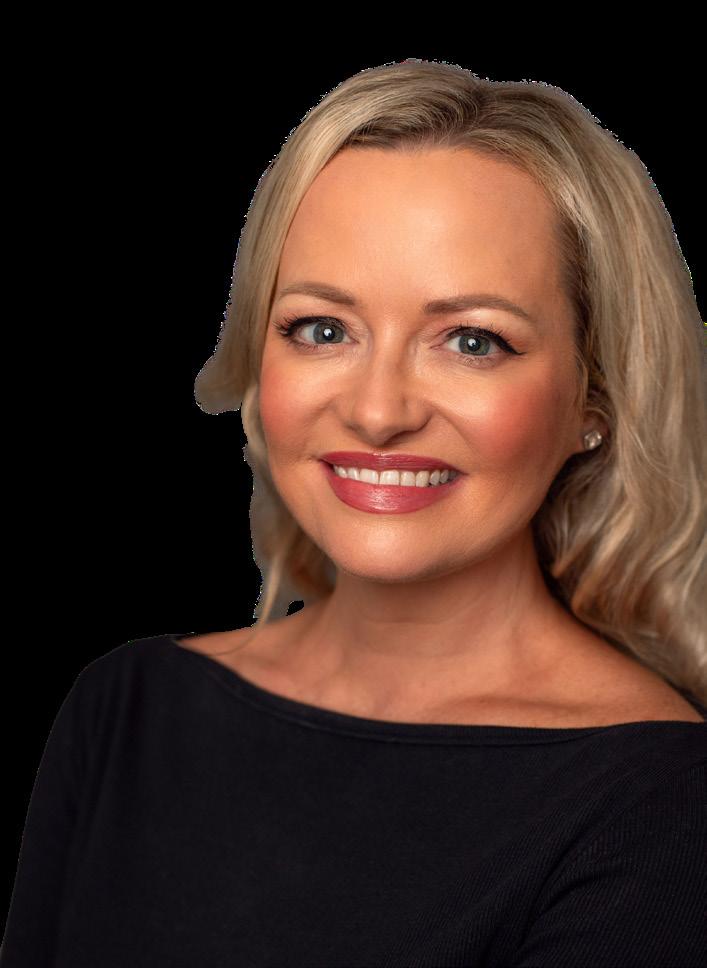

“AS THE QUEENSLAND GOVERNMENT’S DEDICATED GLOBAL BUSINESS AGENCY, WE ARE RESPONSIBLE FOR TRADE POLICY IN THE STATE AND SEEK TO INFLUENCE POLICY WHERE WE’RE NOT DIRECTLY RESPONSIBLE”
– JUSTIN MCGOWAN, CEO, TRADE AND INVESTMENT QUEENSLAND
We exported approximately AUD$134 billion worth of goods and services last year, so maintaining our market share is important.
There are also particular markets where we’re seeking to grow and diversify – we’re hopeful Australia will enter into a free trade agreement with Europe over the next 12 to 18 months, which we see as a distinct opportunity.
We already have offices in London and Frankfurt, and we’re potentially expanding our footprint in Europe.
For us, it’s all about respecting our existing trading partners, shoring up those relationships, and then
creating new opportunities – not just in terms of who we trade with, but what we trade. Ultimately, we’re looking at diversifying our range of offerings as a state.
Over the next five years, we anticipate challenges and a degree of uncertainty and volatility surrounding global economies. In part, this is due to changes in the US Administration, but even more broadly, there were 77 federal elections last year, so there’s a lot of turbulence.
In an unpredictable world, Queensland offers investors something rare - certainty. Here, rules don’t change with the wind. Here, your capital doesn’t just find a home, it finds a future.
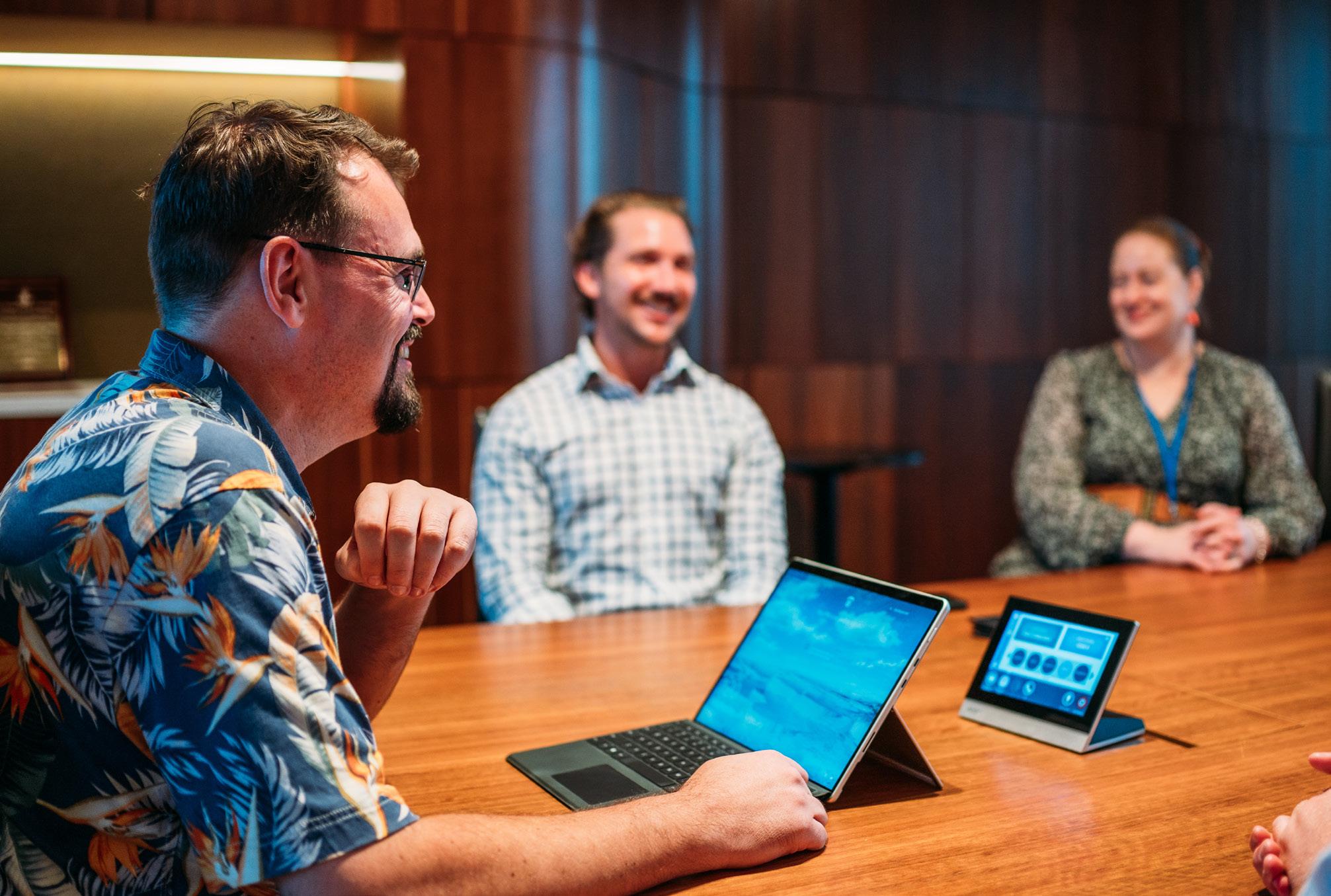

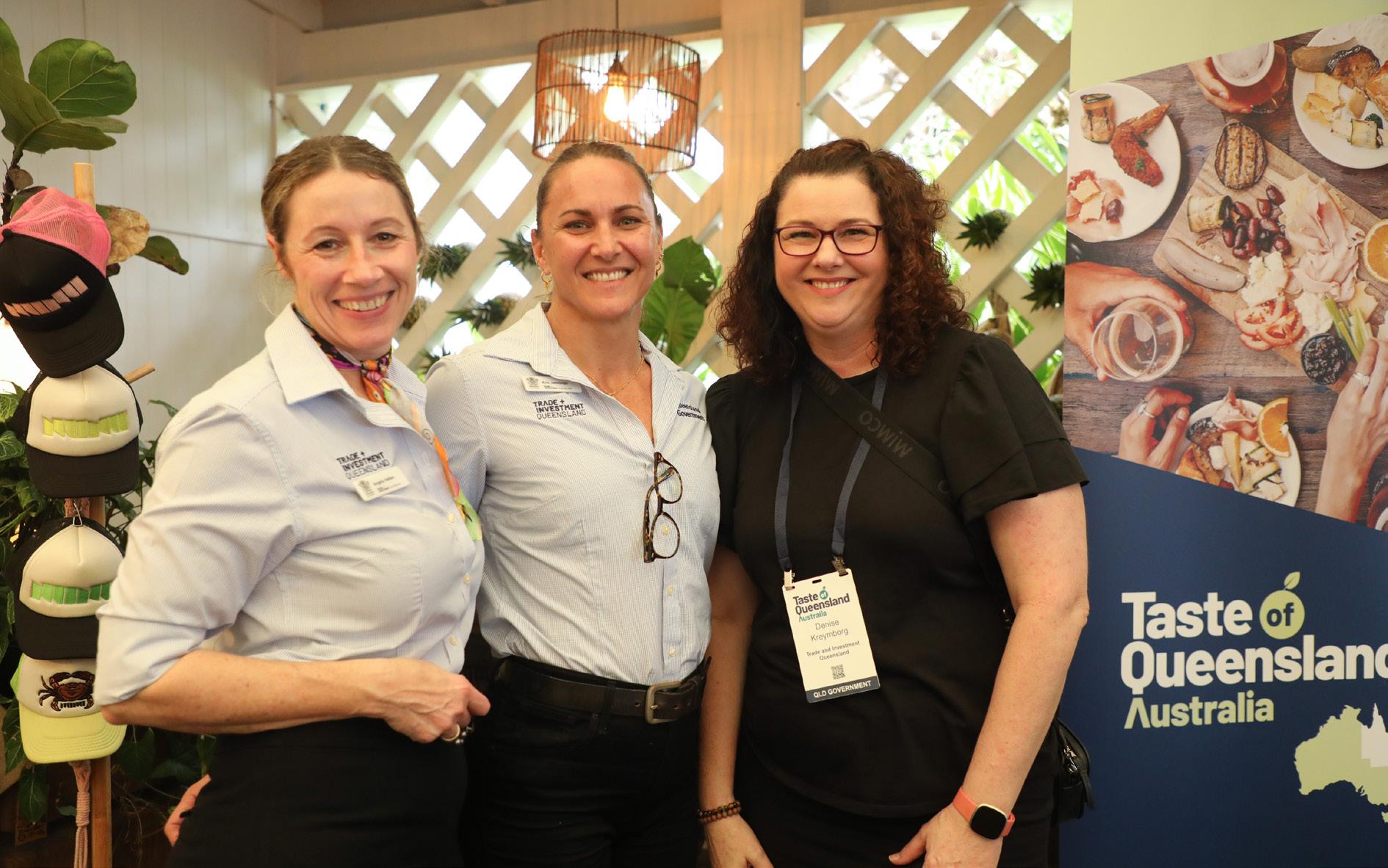
AO: Finally, are you optimistic about the future of Queensland’s trade and investment sector?
NC: In Queensland, we’re incredibly optimistic, and I think we’ve got good reason to be.
For example, I just attended a BioTech conference with some amazing local companies. People outside of Queensland might not know we have some incredible technology, and we’re due to send over 100 people to the BIO International Convention in Boston, US – the largest BioTech conference in the world.
We’ve got great R&D capability in the state, one example being a company called Vaxxas, which has developed advanced vaccine technology with microneedles.
The technology looks like a Nespresso coffee pod; a spring-loaded mechanism vaccinates you when the technology is activated, and there’s no cold chain storage required. Imagine being able to send this capability anywhere in the world; you can even self-applicate it.
There is an important job to do in highlighting the R&D capability that already comes out of Queensland. It’s worth noting that, as a state, we don’t just send critical minerals and coal around the world.
Having said this, we have recently discovered AUD$500
billion worth of 19 of the world’s 31 critical mineral deposits in the state – and they’re incredibly shallow and easy to mine. So, we’re currently in a kind of gold rush around critical minerals such as vanadium, cobalt, and nickel –many of the critical minerals the world needs.
So, our exports are now pivoting from shipping coal, liquid natural gas (LNG), and fruits and vegetables towards critical minerals.
We’ve got a great offering, and we’re well-balanced in terms of our position in the world.
The reality is, as a state, we’re a half-a-trillion-dollar economy – if we were a country, we’d rank 48th in the world.
I believe Queensland will be one of the world’s most admired subnational economies by 2032 - and I’m here to make sure we get there, not by chance, but by design.
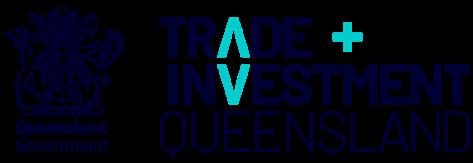
Tel: +61 7 3514 3147 www.tiq.qld.gov.au

